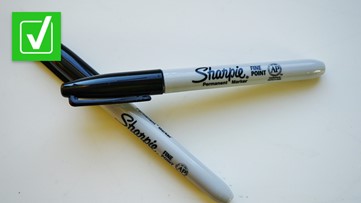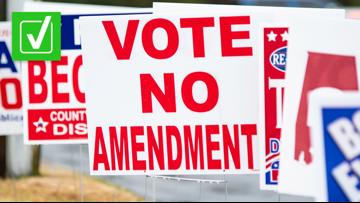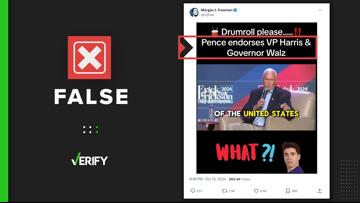ST. PETERSBURG, Fla. — In this red-hot housing market buyers are trying all kinds of ways to get ahead of the competition.
Writing so-called ‘love letters’ to the seller of a home to seal the deal is a tactic that’s been used by prospective buyers for a long time. These letters are seen as a means to persuade the seller to choose them over another qualified offer, often by making an emotional appeal.
But could this common practice be a legal liability opening you or the seller up to violating state or federal fair housing laws?
THE QUESTION
A VERIFY viewer texted us asking if writing a ‘love letter’ to a seller is illegal?
THE SOURCES
- Brian Frey, Tampa-area realtor
- National Association of Realtors (NAR)
- Fair Housing Act
THE ANSWER
While writing a ‘love letter’ to a home seller isn’t illegal, the National Association of Realtors advises against it, arguing it could be a legal liability because of concerns about discrimination.
WHAT WE FOUND
The National Association of Realtors (NAR) is warning its members about utilizing ‘love letters’ to help clients stand out from the competition.
The issue? It raises fair housing concerns, according to the NAR.
The Fair Housing Act prevents landlords, banks, relators, anyone involved in leasing or selling homes from discriminating based on race, sex, disability, religion, familial status. Some states or municipalities include sexuality and occupation. In Pinellas County, sexual orientation is protected.
The whole point of writing a ‘love letter’ is to sway a seller, but that seller could select or reject a buyer’s bid based on personal information that could violate fair housing laws.
The NAR gives the example of a potential buyer including family photos around a Christmas tree in a letter revealing their religion.
“While it may not be the buyer’s intent for the seller’s intent to use this information to discriminate,” the video says, “that is essentially the position a love letter can place the seller.”
Oregon became the first state in the nation in 2020 to ban these so-called love letters over these concerns. But a lawsuit challenging the law argues the Oregon Legislature, “could not point to a single Fair Housing claim arising from a love letter.”
A federal judge suspended the ban in early March.
A spokesperson for NAR confirmed to 10 Tampa Bay that it was not aware of any fair housing claim based on a love letter.
“That does not mean discrimination caused by love letters does not occur, however,” the spokesperson wrote in an email. “It would be very difficult for a party who might have been discriminated against because of a love letter to know it, and to file a complaint.”
The Florida Realtors Association includes similar guidance against these letters, even beyond concerns over fair housing violations.
"Receiving these letters isn’t in the seller’s best interest," said Richard Masterson, broker-associate with ONE Sotheby’s International Realty in Fort Lauderdale, "because it’s not about the best price or other terms that benefit the seller.
Tampa area realtor Brian Frey says he tells his clients who want to write one to focus on what they like about the house, or the strength of their pre-approval status.
“Is it illegal? No. Can it get you in trouble? Yes,” Frey said. “It’s not to say you can’t write them, it’s to say if you are going to, exercise caution.”
A 2021 Zillow survey of realtors found that all-cash offers were most influential on a seller’s decision. Love letters, according to the survey, were the least important factor.
The NAR has raised similar fair housing concerns when it comes to so-called 'pocket listings,' which generally refers to a listing in which an agent has a listing agreement and the seller does not authorize making the listing public.












